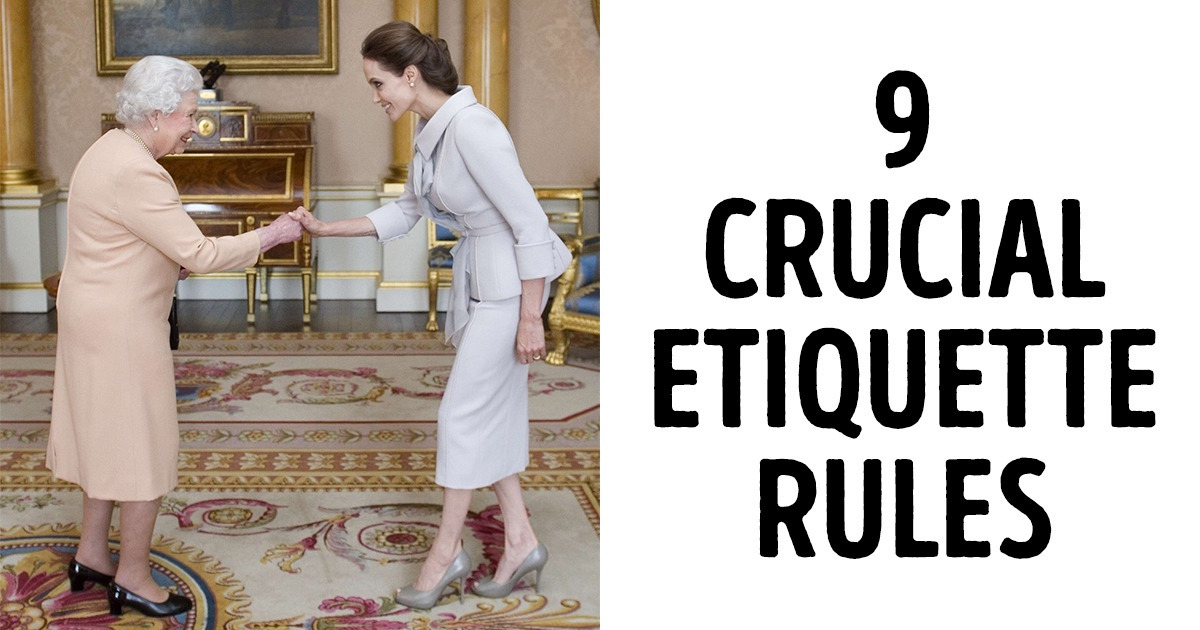Describe the purpose of the rules of etiquette.
The royal court was the natural home of etiquette, because it centred upon a monarch around whom niceties of behaviour spread in expanding circles https://businesstransitionsimplified.com/. The author of Beowulf, writing of Anglo-Saxon society, describes Wealtheow the queen, “mindful of etiquette,” carrying the goblet first to the king, then to the courtiers, in a clearly defined order of precedence.
Etiquette serves as a preventive measure against conflict. When people observe polite and respectful behavior, misunderstandings and disputes are less likely to arise. Whether in family gatherings, business negotiations, or public spaces, adhering to established etiquette norms can help prevent confrontations and promote a peaceful coexistence.
Etiquette is a cornerstone in the formation and maintenance of meaningful relationships. Whether in personal or professional settings, practicing good manners and etiquette can strengthen bonds, foster trust, and create a sense of mutual respect. It helps individuals navigate the complexities of human relationships with grace and courtesy.

Rules of etiquette
While protocols may have shifted, at their core, modern etiquette rules are about taking others’ feelings into consideration and showing empathy to your fellow human. Practicing little rules of etiquette can make a big difference in how we interact with others.
“Sometimes being late is just a bad circumstance, but if you’re late often, then that’s a choice you’re making,” says Grotts. “When you are constantly late, it says that your time is more important than everyone else’s.” Polite manners say you should do your best to be on time as much as possible and to let people know if something has come up and you’ll be late. But if it’s an ongoing problem, you should make a real effort to learn to stop being chronically late.
In today’s fast-paced world, it can be easy to forget the simple courtesies that help make social interactions run smoothly. However, practicing good etiquette is important not just for making a positive impression, but for showing respect and consideration for those around us. Whether you’re at work, out in public, or in a social setting, following some basic etiquette guidelines can go a long way. In this post, we’ll cover several fundamental etiquette rules that everyone should strive to follow in their daily lives.

While protocols may have shifted, at their core, modern etiquette rules are about taking others’ feelings into consideration and showing empathy to your fellow human. Practicing little rules of etiquette can make a big difference in how we interact with others.
“Sometimes being late is just a bad circumstance, but if you’re late often, then that’s a choice you’re making,” says Grotts. “When you are constantly late, it says that your time is more important than everyone else’s.” Polite manners say you should do your best to be on time as much as possible and to let people know if something has come up and you’ll be late. But if it’s an ongoing problem, you should make a real effort to learn to stop being chronically late.
10 golden rules of email etiquette
The first and most important email etiquette is to avoid vague subject lines. That’s the foremost thing that your viewers see, and they don’t want to be flooded with subject lines that give a vague representation of what’s in the email content.
Email is how many businesses communicate. It’s fast, easy, and accessible. Plus, email is permanent. If you forgot what you were asked, simply find the last email thread for the answer. Email is also effective at disseminating information among team members. However, there is no way to unsend an email.
Whether crafting sales emails or designing trigger campaigns, following the standards as per the email etiquette training ensures professional communication in business, fostering positive client relationships, and upholding your brand’s reputation.

